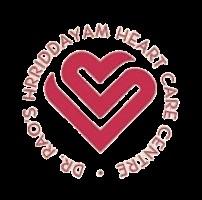ABOUT DOCTOR


Interventional Cardiologist



Apollo Hospitals, Indore
Dr. Sarita Rao is a Sr. Interventional Cardiologist at Apollo Hospitals, Indore. She is the first female Interventional Cardiologist in Central India. She is Fellow of American College of Cardiology(FACC) and Fellow of European Society of Cardiology(FESC)

For OPD Appointments Contact : +91 9893925000
OPD Timing at Apollo Hospitals, Indore: 11:00 AM to 4:00 PM
Location: Apollo Hospitals, Indore Sector D Rd, Scheme No 74C, Vijay Nagar, Indore.
OPD Timing at Clinic: 6:30 PM to 8:00 PM
Location: 303, Third Floor, Vishal Astra, Opp. Satya Sai School, A.B Road, Indore, MP.
Understanding arrhythmia Types, symptoms, and treatment options
An erratic heartbeat is known as an arrhythmia. This indicates that your heartbeat is not in its regular rhythm.
Some people report feeling their hearts "flutter," "skip," or "add" a beat. Tachycardia (a rapid heart rate) or bradycardia (a slow heart rate) can cause discomfort. On the other hand, you could not even notice.

Arrhythmias can be life-threatening or completely benign. If you notice anything unusual with your heart rate, getting medical attention immediately is essential.
Types of Arrhythmias
Among the many forms of arrhythmia are:
Atrial Fibrillation - When the heart's top chambers pulse irregularly or too quickly, a condition known as atrial fibrillation (AFib) develops.

Ventricular fibrillation - When the bottom chambers of the heart pulse erratically and cannot pump blood adequately, a condition known as ventricular fibrillation (VFib) develops.
Supraventricular Tachycardia - A rapid heartbeat that starts in the higher heart chambers is called supraventricular tachycardia (SVT).

Bradycardia, or a slow heartbeat, can be brought on by several circumstances, including getting older, using certain medications, or having a pre-existing health problem.
What causes arrhythmia, and how can it be prevented?
Possible causes of irregular heartbeats are:-
• Involvement with tobacco use.
• Having a few drinks.
• Putting caffeine into one's system by ingestion.
• Using stimulants like herbal supplements or cold medications.
• Experiencing hypertension.
• Having a body mass index (BMI) of 30 or more.
• High blood sugar levels.
• Possessing the sleep disorder known as apnea.

In what ways might arrhythmia cause problems?
Arrhythmias have several potential side effects if not treated.
Cardiac muscle weakness (cardiomyopathy).
Sudden cardiac death.

Stroke.
Common signs and symptoms include:

The symptoms may also change depending on the type and severity of arrhythmia.
• A feeling of rapid, irregular beating in the chest is called palpitations.
• Feeling like you can't catch your breath (shortness of breath).
• Tiredness or weakness that persists despite enough rest is called fatigue.
• A chest discomfort might be either an acute or dull ache.
• Feeling faint or fainting, dizzy, or lightheaded.
• Sweating refers to episodes of profuse, unexpected sweating.
Various Arrhythmia Treatments -
Different treatment methods may be available depending on the kind and degree of arrhythmia. Typical methods of treatment include:-

Medication: - The heart's rhythm can be regulated, and arrhythmias are prevented with medication, such as beta-blockers, calcium channel blockers, and anti-arrhythmic medicines.

Cardioversion: - With the help of electrical shocks or drugs, cardioversion can normalise the heart's rhythm.
Ablation via Catheter: - Catheter
ablation is a non-surgical method of destroying the arrhythmogenic regions of the heart using radiofrequency energy.
Heart rhythm disorders can be managed and even prevented using implantation devices like pacemakers and implantable cardioverter-defibrillators (ICDs).
Surgery: Arrhythmia treatment options might range from medication to surgery. Arrhythmias can be avoided through scar tissue created in the heart through surgical treatments like maze surgery and the Cox-Maze procedure.
Conclusion

Stroke, heart failure, and abrupt cardiac arrest are just some dire outcomes that can result from arrhythmia. Those affected by arrhythmia would do well to educate themselves on the condition and the various treatments available to them. Talk to your doctor or a medical professional as soon as possible if you encounter any signs of arrhythmia to get a proper diagnosis and start treatment immediately.
Dr. Sarita Rao is one of the Best Cardiologist in Madhya Pradesh who is known for treatment of heart disease in Indore. If you are suffering from heart problems and looking for the Best heart specialist in Indore, then visit Apollo Hospitals. Call us now for appointment & inquiry +91 9893925000 For more details visit online - https://drsaritaraocardiologist.com/












